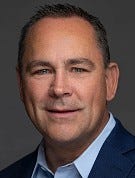Channel Futures Showcases 2024 Next Generation MSPs, an MSP 501 ListChannel Futures Showcases 2024 Next Generation MSPs, an MSP 501 List
These 220 Next Generation MSPs show growth and innovation in the right spots.

Whether they are among the elite or just a tad below that level this year, we notice a group of managed service providers (MSPs) poised to grow faster than the rest.
The 2024 Channel Futures MSP Next Generation awards honor those MSPs we consider the most innovative and we expect to take off in the near future, even if they are already among the top MSPs. In past years, our Next Generation winners were MSPs that failed to make the MSP 501 list. This year, we included MSP 501 winners on our list. The 2024 Next Generation winners include 181 of the MSP 501 and 39 other MSPs that meet our criteria.
What Makes a Next Generation MSP?
We picked the innovative 2024 Next Generation MSPs based on information from their MSP 501 applications. We looked mainly at revenue and profit numbers and projections, operational efficiency based on employees and end users, customer acquisition and vendor onboarding strategies, managed service growth areas, and artificial intelligence integrated solutions.
The 2024 Next Generation list consists of companies that met at least 12 out of nearly 40 total key criteria. These include far higher-than-average percentages of revenue generated from managed services, professional services or recurrent cloud services, industries such as communications/telecom, financial services, state or federal government, health care or technology.
We also looked at MSPs that partner with hyperscalers AWS, Microsoft Azure or Google Cloud, and those that expect large revenue gains in 2024 from hot tech areas such as artificial intelligence, managed security, infrastructure as a service or platform as a service, SaaS/cloud backup and restore, managed SD-WAN and others.
Another consideration was an MSP’s use of social media, webinars/seminars, or email newsletters to acquire new clients.
The 220 Channel Futures 2024 Next Generation MSPs on average had a mean of $84.2 million annual revenue, including $29.2 million of recurring revenue, EBITDA of $11.7 million and 289 employees. That compares to an average mean of $43.7 million annual revenue, $18.5 million recurring revenue, EBITDA of $6.3 million and 155 employees for all of the MSP 501 applications.
While MSP 501 winners have rosier forecasts than MSPs in general, the Next Generations MSPs are especially optimistic — 80% expect managed services revenue to increase in double digits this year, including 32% expecting them to soar by more than 20%. That compares to 73% of MSP 501 winners who forecast double-digit increases and 28% of 20% or more. And 30% of Next Generation MSPs expect their managed service profits to increase by more than 20%, compared to 25% of the MSP 501 winners who expect such a large jump.
One of the major differences between Next Generation MSPs and all MSPs is the use of AI services. Forty-two percent of Next Generation MSPs said they expected AI-powered tools to be among their biggest revenue gainers in 2024, compared to 23% of all MSPs. Cybersecurity and cloud service usage monitoring were areas where Next Generation MSPs really stood out.
Click here to access the list of all 220 2024 Next Generation winners. We interviewed a few to provide an idea of where they are growing – and where they’re going.
Blue Mantis made the 2024 Next Generation after an eventful year. Blue Mantis had a name change – or color correction, if you will – in July 2023 when it rebranded from GreenPages. That was part of its strategy to redefine the company, according to Blue Mantis CRO Terry Richardson. Richardson joined Blue Mantis shortly before the rebrand. Josh Dinneen, the previous CRO, became CEO at the start of this year.
“It’s been quite a ride,” Richardson said of Blue Mantis’ last 15 months. “We’re certainly proud of the prior three decades worth of work serving customers [as GreenPages], but the company we are today is a lot different.”

Blue Mantis' Terry Richardson
Blue Mantis is strong in three prime Next Generation areas — cybersecurity, cloud and backup/DR.
“Cybersecurity is our superpower,” Richardson said. “If you ask me what customers are interested in today, cybersecurity is top of mind.”
Blue Mantis keeps extending its security capabilities. This year it launched a Blue Insight enterprise-grade network security solution and acquired cybersecurity professional services firm HighTechnique. Blue Mantis now stands with a headcount of roughly 400 in the U.S., Canada and India.
Data protection increasingly plays a role in cybersecurity, giving customers a way to restore their data after an attack or other disasters. Blue Mantis Managed BaaS is another 2024 addition, using backup technology from Veeam and Wasabi to protection physical, virtual and Microsoft 365 and Azure workloads.
“Customers want to know that they can roll back to a good state whether it's because of a software upgrade, like in the case of [the] CrowdStrike [update that knocked out Microsoft Windows systems] or God forbid, because of a cyber event,” Richardson said.
On the AI front, Blue Mantis also launched a partnership with AI Technology Partners to help firms implement Microsoft Copilot.
Richardson said Blue Mantis’ cloud business is also growing, particularly around Microsoft.
River Point Technology focuses less on security and SMBs than do many MSPs, but is experiencing rapid growth. River Point CEO Jeff Eiben said the Canonsburg, Pennsylvania-based MSP grew revenue 50% year-over-year in 2023, and is on track to double in 2024. River Point is strong in the financial services, life sciences, retail and technology verticals.

River Point's Jeffrey Eiben
“We're not a traditional MSP by any stretch,” Eiben said. “We focus on emerging technologies, and we're mainly within the Fortune 500, so we do a lot with automation and those types of things for enabling cloud."
He said he's been adding staff as clients cut back.
“We’re seeing organizations have less staffing; they’ve had to lay off or they had job requisitions cut,” Eiben said. “And they have initiatives around digital transformation with self-service automation, with AI, and they need help executing.”
Eiben wrote a book called “Value Creation Technology” describing River Point’s approach.
“We have three phases: choosing, incubating and scaling,” he said. “A lot of our customers are in that scale phase. So we call it helping them with the 'day two,' helping scale it across their consumer groups or their lines of business development teams to increase their flow of new applications into the market. That's really where we focus most of our energies, and it's been robust.”
Eiben started River Point in 2011 after spending five years as an account manager at VMware. He describes his company as a “lifestyle regional VAR” until around 2020, when he made a growth push, scaling his staff and his customer base beyond western Pennsylvania. This year River Point brought in a few VMware vets in key management positions — managing director of global client engagement Dane Smith and VP of service delivery Steve Pantol.
Eiben said River Point “dabbles” in cybersecurity but is strong in cloud, working with all three hyperscalers, but mostly AWS. It also helps companies scale up modern IT initiatives in areas such as containers and Kubernetes.
“Our play on the MSP side is more day two,” Eiben said. “Customers don’t want us to just operationalize their environment. We take all these open source or enterprise technologies, we version them, we test them, we scale them, we do all the things that they don't want to do. So we see that around Kubernetes. Their clusters may be way overprovisioned. We take over and manage the clusters, bring best practices and day two support.”
Toronto-based Jolera, No. 407 on the 2024 Channel Futures MSP 501, has steadily expanded into the United States and Europe on the back of its cybersecurity business. Jolera CEO Alex Shan said the company has invested heavily in cybersecurity for the past five years, and in 2024 acquired Portugal-based ITCenter, partly for its AI practice.
He said cybersecurity remains Jolera’s major calling card as it remains a major concern for clients worldwide.
“Cybersecurity is like chasing a rabbit around a track. You're never going to quite get there, but you’ve got to keep pushing and keep going,” said Shan.
He said cybersecurity makes up about 40% of Jolera’s business and 70% of its pipeline. And Shan expects Jolera’s success selling cybersecurity to SMBs will fuel its AI business.
“There's a big opportunity in cybersecurity for the SMBs, and we've been doing that for a very long time,” Shan said. “Now, we have a bunch of SMB clients, and they're coming to ask us, 'How do we actually use this in our business? How do we take the concept of AI and use it in our accounting department, in our marketing department, in our sales department?' We’re actually developing these products now to help bringing highly complex AI concepts down into SMB as well. So that's a key part of our strategy.”
The ITCenter acquisition brought Jolera to roughly 550 employees worldwide, and gave it a push toward building a lucrative AI business.
“Right now our focus is using our AI tools to build automation for our actual practice and use that as a template to build on for our partners,” Shan said.
Align – No. 31 on the MSP 501 – owes its fast growth to selling cybersecurity to financial institutions such as private equity, hedge funds and other registered investment advisors.
“We're on the more mature side of the in the MSP ecosystem in terms of the type of clients that we service, as well as our offerings and number of users as well,” Align president of managed services Vinod Paul said. “We have a high concentration on recurring revenue.”

Align's Vinod Paul
There's a lot of competition selling cybersecurity, which means Align must get it right to thrive.
“A lot of managed service providers provide cybersecurity services,” Paul said. “So we consider ourselves an MSP and an MSSP, meaning for all our clients, we have MDR, SIEM, SOC. All of our clients have that service. If they're going to be a client of ours, they have to take that service on, or we won't take them on as a client. With them being regulated, if they have a cyber event and they don't have an MDR, that could have at least detected it or prevented it — it's too much risk for me.”
About the Author
You May Also Like


